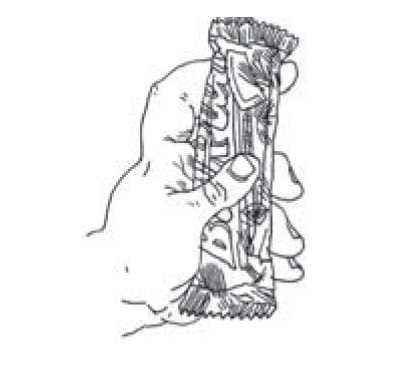Tinkle, tinkle, tinkle. What is that delicate yet eerie sound of ice bobbing gently against glass? Why, it can be none other than our mysterious hero, tiptoeing down the dark hallway to lead the tots Sally and Bill on another exciting adventure.
Readers of a certain generation will immediately recognize that I am referring to the series of children’s books by L. P. Eaves, featuring that marvelous creation old Rye-Head himself, his head a cunningly crafted glass ball, joined in the middle by a screw top, and half-filled with small-batch Kentucky rye whiskey on the rocks. Would Rye-Head be in a good mood, or would he just yell at Sally and Bill for the whole book? Finding out was part of the fun!
Of course, in this day and age we are supposed to shelter our children, and I mean literally. We are expected to provide them with some sort of rudimentary structure to protect them against wind and wild animals, and I for one think it’s a real shame. My grandmother thought nothing of our present-day “political correctness” as she sat by my bed, reading to me from Rye-Head Meets a Friendly Tapeworm or Rye-Head’s Immigrant Problem in her terrifying voice, wearing the devil mask with which she loved to playfully tease me on such occasions. I doubt whether our current crop of youngsters could weather such a vigorous ribbing.
Just last weekend I was at the home of some acquaintances who positively spoil their three-year-old child, dressing him in the finest of dungarees and feeding him from the table. This stout little fellow had fashioned a puppet theater out of an old refrigerator box and crafted cunning homemade puppets from old rags, buttons, and string. These amiable characters he worked with his feet whilst performing an accompanying gavotte of his own composition on a miniature harpsichord. The effect, I must admit, was stupendous, yet whatever happened to the adult art of conversation over beef Wellington and coffee? All discussion of my eczema and colitis came to an inexplicable halt as the rapt parents fixed their shining gazes on their coddled offspring, who concluded his performance by walking around the room on his hands for upwards of forty-five minutes while reciting Chaucer in the original pronunciation.
“If I had a three-year-old, I’d teach him to do something useful, like fight Nazis,” I blurted.
The parents of the prodigy chuckled, choosing to interpret my remark as a harmless jest, but I assured them I was quite serious. I asked whether they had heard of Baby Mystique, the infantile French spy who parachuted behind enemy lines using only her simple cloth diaper. “Now,...
You have reached your article limit
Sign up for a digital subscription and continue reading all new issues, plus our entire archives, for just $1.50/month.
Already a subscriber? Sign in





